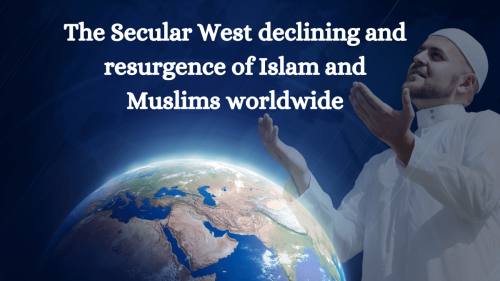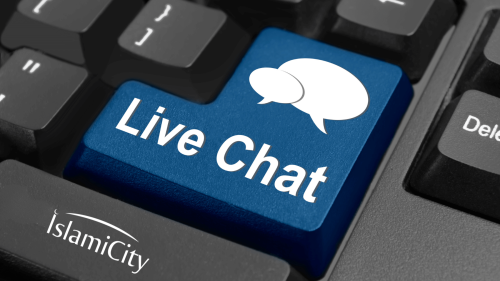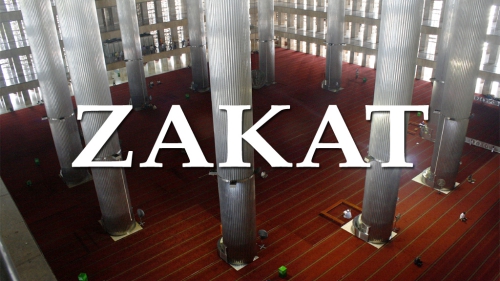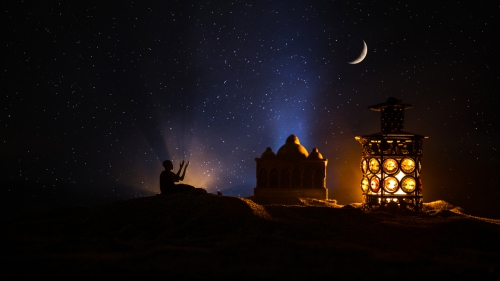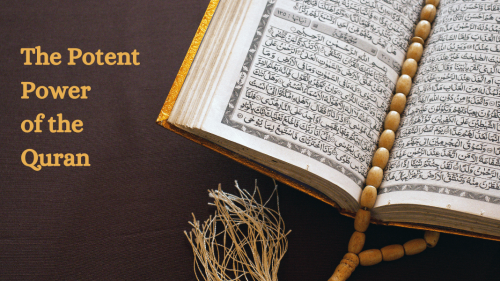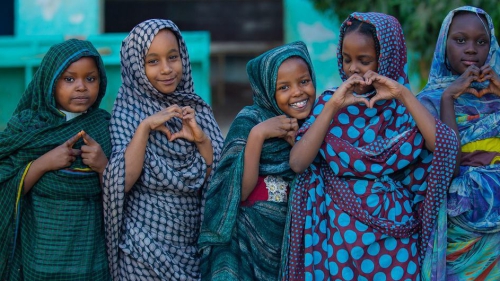Colors of Our Community: Islam is for Everybody

Allah created human beings in the most beautiful way and with an amazing diversity. He created men and women and many different ethnic groups and tribes. And He wants us to learn from this variety, from the different shapes and colors, so we can get to know one another (Qur’an: Surah Al-Hujurat: 13).
Diversity is from Allah’s Mercy
Diversity is from Allah’s mercy for us, because through this diversity He helps us learn to be open minded, to be tolerant, and to get rid of our prejudices and biases. There are not many opportunities to experience the different vibrant colors of our Muslim community. For those fortunate ones whom Allah has granted the pleasure to visit His holy house in Makkah, they might have experienced the amazing diversity Allah has put in His Muslim community. People from all over the world, from all corners of this earth follow His call when they gather in Makkah. However, Allah makes all His visitors wear the same white clothes. He wants all His visitors to look the same and erases all worldly differences. Only the different colors of our skin and eyes reflect Allah’s amazing wisdom of creating not everybody the same exact way. It is the experience of the Hajj, the big pilgrimage, that changes many peoples' lives. It teaches something they cannot experience elsewhere; that there are people from different ethnic groups, from different parts of the world, different landscapes, cultures, and traditions. But all of them are united in Tauhid - in their belief in the One and Only God.
The famous Malcolm X (El-Hajj Malik El-Shabazz; 19.05.1925 – 21.02.1965) was able to go through this experience. His experiencing the diversity of the Muslim ummah changed his outlook on life. He dropped out of the Nation of Islam and embraced Sunni Islam. He acknowledged and propagated that no human being is superior to another human being on the basis of his race or skin color. But rather, what differentiates people is their taqwa - their awe and fear of Allah (Qur’an 49: 13). While Malcolm embraced diversity in humanity; some people around him did not. He was assassinated for his activism against any form of racism. Besides his early death, Malcolm X’s autobiography (first published in 1965) influenced many people to eventually embrace Islam.
Islam is for Everybody
Our different Islamic celebrations are a good chance to see the beautiful colors and astonishing diversity of our community. Muslims around the world wear their festive and often ethnic attire during their cultural celebrations. Women wear beautiful colorful or black festive dresses and headscarves and display modesty in all their beauty. They reflect what the Prophet (peace and blessings upon him) said about Allah. Allah is beautiful and loves beauty (Hadith Muslim). Men as well usually dress in their best clothes and proudly show the love for their home-country, tribe, or ethnic group. For example, during the Eid prayer after Ramadan at the mosque of the International Islamic University Malaysia, I observed men from Africa wearing unique embroidered hats. Men from Afghanistan wear wide brown head coverings. Men from Yemen wear long coats with leather belts and symbols of their traditional swords. Some decide to wear modern style suits. However, what all of them have in common is their desire to honor Allah by wearing the best clothes they have on this special day. They become a beautiful reflection of the diversity that is so unique to our global Muslim community.
Allah Looks at Our Hearts
Allah says in His amazing book that He loves the believers. He does not look at a person’s skin or hair color or at her height or whether she is big or small. He does not look whether he is a manager, professor, cook, or a cleaner. What matters to Allah is how much we obey Him, how much we follow the rules He laid out for us. Allah looks at what is in our hearts. And the only benefit on the Day of Judgement will be a sound heart (qalb-un-saleem; Qur’an 26: 88). Our children and our wealth will not benefit us, neither will our status, tribe, or any kind of affiliation, except our affiliation to those who come with a sound heart. SubhanAllah. May Allah grant us a sound heart. Ameen.
Allah looks at our pure intentions and how much we are of benefits to others. Remember! The well known Hadith that states: ‘Actions are by intentions.’ One of the first Muslims was Bilal (may Allah be pleased with him). He accepted Islam when he was still a slave. But Allah guided him because Bilal loved Islam and loved Allah. His footsteps in Paradise could be heard by our beloved Prophet (may Allah shower peace and blessings on him) in this world. Allah did not look at Bilal’s skin color. He did not look at his status as a freed slave. Allah accepted Bilal’s love and obedience to Him and made him the first one to call His beautiful call for prayer.
Each time we hear the call to prayer, we should remember this story of Bilal. We should aim to purify ourselves from any kind of apparent and hidden form of racism that we might carry in our hearts. Do we really see every human being as the same and having the same inherent potential of becoming a believer and becoming one of Allah’s close intimate friends (wali)? Or do we still look down on people with a darker skin color, different eye shapes, or because they are poor, uneducated, white, red, yellow, short, fat or hairy? Sometimes, racism is so ingrained in our societies that we do not even consider it as racism. For example, do people of color in the United States really have the same rights in real life as white people? Why are prisons filled with a proportionally much higher number of people of color? How is the situation in our own societies?
Another companion of our beloved Prophet was Salman al-Farsi who was not an Arab but Persian. Again, it did not matter to Allah where he was from. Salman Farsi was also a slave when he accepted Islam. These are just two examples from the earliest time of Islam that show that Allah made His religion for all of humanity. And that diversity is an important part of our religion. These two examples show that Allah loves the poor, those who really love Him for His sake and not because of status, money, or fame. Sometimes, those who seem to have the least status in the eyes of people, have the highest ranks in the eyes of Allah.
Allah’s Wisdom
Islam has spread all over the world. People from different countries such as Colombia, Ecuador, Brazil, Mexico, Japan, Europe, and Australia are converting to Islam. There is virtually no region on the earth where Islam is not present. We have big, historically grown Muslim communities in most parts of Africa, Asia, and Europe. This diversity illustrates that Islam is colorful and includes people of all different backgrounds from around the world. It is not the strict and stringent religion as some people like to interpret and portray it. People in Afghanistan live differently from people in The Gambia. People in Russia have a different tradition from people in Malaysia. People from Syria have different views on life compared to people in Germany. And still! All of them find the truth in Allah’s religion. All of them accept Islam as their religion. All of them accept Islam as their way of life. All of them feel Allah’s immense, indescribable love, might, and power. They have not given up their unique identity. Islam is not black and white. It is full with beautiful shades and colors.
Our Amazing Creator
It is up to us to accept and tolerate the different shades and colors in our Muslim community. They are a blessing and as such they can help us to try to understand some little, tiny aspect of our Creator. He is that amazing Being who creates endlessly. He did not create this world and then stop. Rather, Allah continuously creates. No human being is similar to another. One beautiful example are our finger prints. No human being has the same finger print like another human being. Even twins do not have the same exact finger prints. All of us are unique.
And if we look further, reflect on the diversity Allah created in the world of animals and plants, we cannot stop wondering. Wondering Who this amazing Allah is. Who is our Creator? The One that wants us to pass this test called ‘life in this world’ with flying colors. Part of this test is accepting, tolerating, and embracing the diversity He gifted to this world. May He grant us more understanding and appreciation of Him and of His creation. Ameen.
Spreading Islam to Everybody
If we understand some of the wisdom behind Allah's creating this diversity in humankind, we will make an effort to get to know people that do not belong to our ‘group.’ We will try to tell people about our beautiful religion - Islam. We will make an effort to spread this way of life because we want other people, no matter what their background is, to benefit from Islam. Dawah is an extremely important activity in our deen.
I remember a book I once read as a teenager. It was written by a young German woman who told about her childhood and teenage years in the jungle of Papua. Her parents decided to relocate there to spread Christianity to the locals, the orang asli so to say, of Papua. At this time, these locals were still headhunters and some of them still cannibals. They had very unique rituals and traditions that must have been extremely strange to this German family. What amazed me about this story and still amazes me is the fact that people are willing to live in such challenging circumstances, face a totally different people, with a totally different set of values and ethics, because they have a strong conviction. Because they believe that theirs is the true religion and they want other people to benefit from this truth.
We need this kind of attitude. We Muslims need to go to the jungle, to the small villages, to the far off mountainous regions, to the secular cities, to the deserts and islands to spread Allah’s message. We need people to do that. And whoever has the strength, willpower, and knowledge to undertake this extremely important task, we need to support them morally and financially. Our non-Muslim brothers and sisters in humanity have a right to be told about Islam. Whatever they hear on the media is not the true image of Islam. Most of our genuine Muslim scholars are of the opinion that knowing Islam through negative media coverage does not count against these people. Of course, they will not accept a religion that is portrayed as violent, oppressive, and cruel. It is our task to explain Islam to them. Only if we explain the beauty of Islam, do they have an actual choice in deciding for or against Islam. This is very important. We need to go out and teach and inform about Islam. Islam is for everybody, no matter where they live, no matter which language they speak, no matter what background they have. It is people’s right over us, the Muslim community, to tell them about the beauty of Islam. InshaAllah.
If you can take some useful information from this article, this comes from Allah SWT. Alhamdulilah. And if there is anything unclear or wrongly expressed, I ask Allah SWT. for His forgiveness.
Topics: Dawah (Outreach), Diversity, Muslim World, New Muslims Values: Equality, Tolerance
Views: 3567
Related Suggestions










